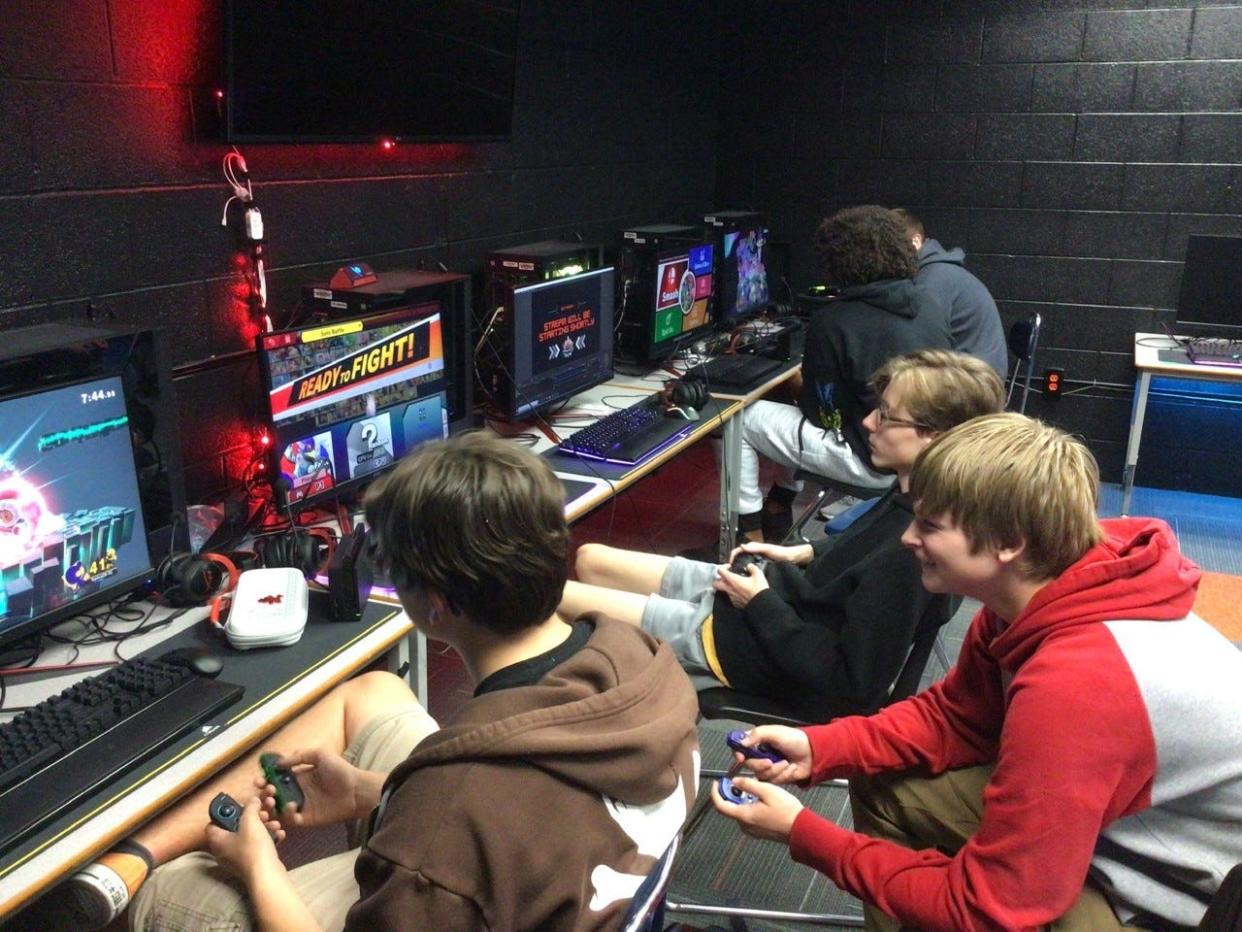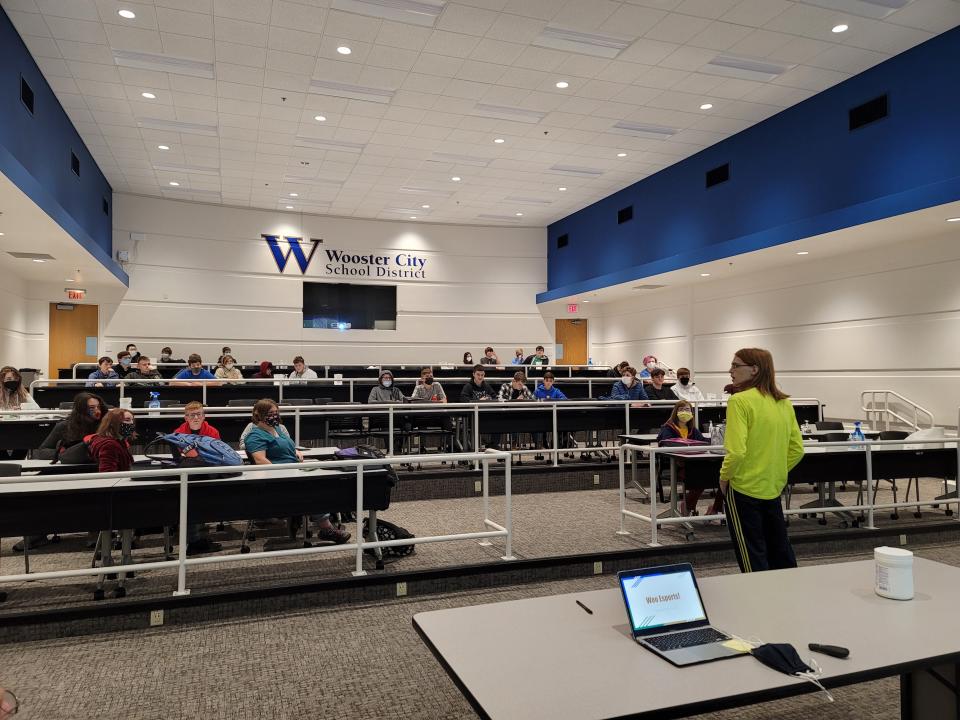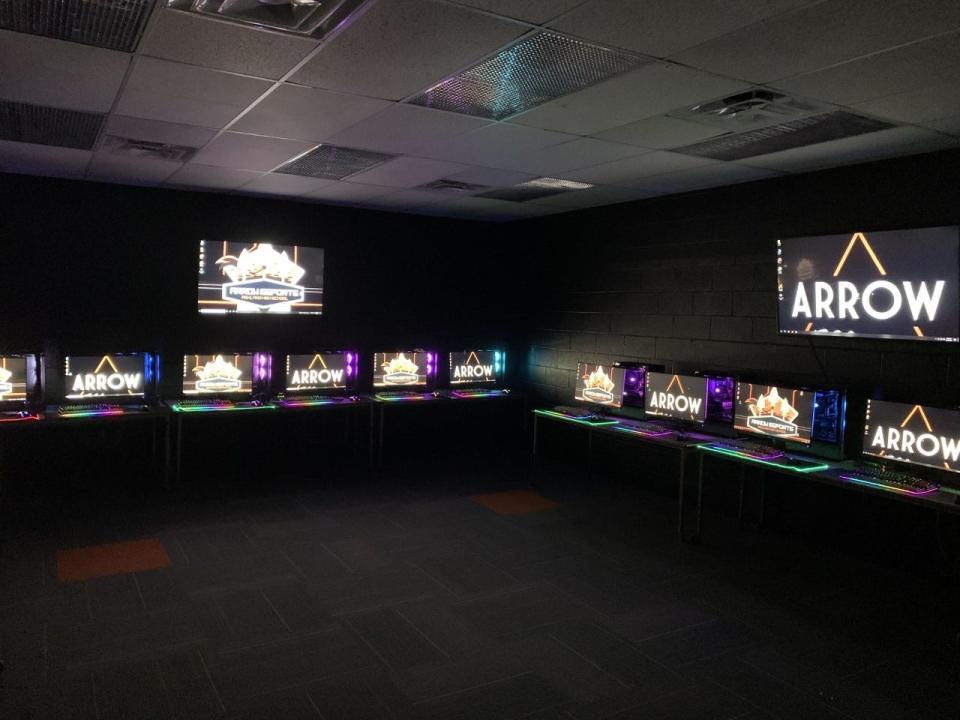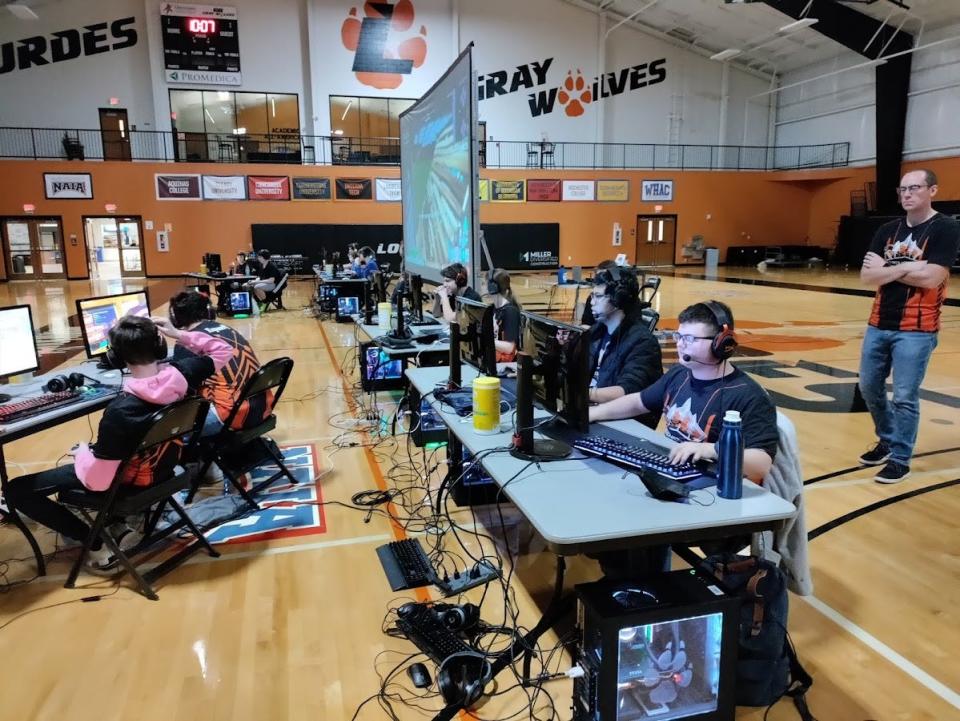Getting in the game: More Ohio schools on board with growing esports trend

When the founder and president of eSports Ohio is asked to describe the emerging sport for which his nonprofit is named, he has a multi-layered answer.
“Esports is competitive gaming. Well, that's what it is at its root, but it's so much more than that,” says Nick Rider of the activity that is a growing trend in schools across Ohio.
Rider said competitive video gaming involves everything from building computers to make them run faster, to wiring the network to provide the fastest Wi-Fi connection.
Combine those aspects with what Rider calls “soft skills,” like communication and personal growth, that students also learn, and that, says Rider, is what makes esports stand out.
“It's insane how big it is with STEM, with traditional athletics and everything in between,” Rider said. “This just blows traditional sports out of the water and its capabilities.”
With the surge of interest in video games and competitive video gaming across the world in recent years, countless colleges, universities and even school districts have started to create their own esports teams where students can represent their schools and finally have an outlet for their love of video games.
How did competitive gaming get started?
While the first video games came out of college labs in the 1950s and '60s, the first at-home consoles and games for the average consumer became more readily available in the 1970s.
With the number of games and public interest increasing over the years, the United States saw its first, large-scale video game competition in 1980, when more than 10,000 players competed in a Space Invaders Championship.
Over the past few decades competitive gaming has grown internationally with professional teams and several colleges that now have teams and offer scholarships. These scholarships have not only brought interest from college students but have also caught the eye of many school districts.
As of January 2020, the District of Columbia and 17 states in the U.S. have school districts with formal esports teams, according to a story from NPR.
There are some national organizations for esports, including High School eSports League and North America Scholastic eSports Federation, and even some at the state level, including eSports Ohio. While the requirements, schedules and games offered through each organization vary, they all allow their teams to compete with other esports teams.
What esports looks like in Northeast Ohio

The size, type and experience level of each team varies per school, and Rider said he has watched the sport grow in popularity since starting his organization back in 2018 with 16 teams.
According to its website, eSports Ohio has over 100 schools registered and a total of seven different games. These games include Rocket League, Overwatch, Super Smash Bros, Fortnite, Valorant, Smite and League of Legends.
Between Ashland, Holmes and Wayne counties, there are seven school districts with teams that are registered with eSports Ohio.
Some schools, like Wooster High and Hiland High, are in the process of starting their teams and have not had their first season yet.
Logan Brown, a senior at Wooster, proposed the idea of starting a team at his school last year, and with the help of social studies teacher Bryan Ehrlinspiel, they were able to get the idea approved by the Board of Education in September.
With the fall season already over, the team hosted its first informational meeting on Nov. 16 with roughly 50 students attending. Although there is a lot of work that still needs to be done before the spring season, including finalizing their equipment and practice space, Ehrlinspiel said he is looking forward to holding tryouts in the spring and leading the team in its first season.
Some area school districts, including Ashland City, New London Local and Triway Local, have had esports teams established for a few seasons.
New London began its first esports season three years ago, said coach and teacher Krystal Kelley. Over the years Kelley has watched the team grow and now has both a high school and middle school group with about 15 students.
Triway Local started its team in the spring of 2019 and has a varsity team of eight players who compete in the game Rocket League.

The program at Ashland City Schools had its first season in the fall of 2019.
With roughly 30 students involved, coach and teacher Ben Spieldenner said he has three different teams. Two of them, the Fortnite and Overwatch teams, competed in regionals this month winning regional runner-up and semi-finalist respectively.

There are at least 18 colleges in Ohio that have esports teams, including the University of Akron, Kent State University, Ashland University and Ohio State University, according to a list on the eSports Ohio website.
Benefits of offering esports
Much like other collegiate sports, several esports teams now offer scholarships for their players, which Rider said not only can draw more people to a college but also can be the ticket that gets some students into some colleges.
“Students who might not have ever thought about going to Tiffin University to pursue anything, are now like, ‘Hey, I can play esports and you know what, I can also learn about multimedia production and streaming,’” Rider said.
Another benefit Rider has noticed is that esports offers an outlet at school for some students who otherwise wouldn't have one. He said of the 3,000 students his organization polled last spring, 75% said it was the first time they had ever participated in a sport.

“It's a complete new demographic of kids that didn't have anything before esports and now they have a sense of belonging and a place to call their own in school,” Rider said.
How to start an esports team
While there is no official procedure for schools to start an esports team, Rider has a few suggestions.
He recommends gauging the interest of the student body for the type of esports team that would be well received. Then make sure they are supported by a coach and by the school administration.
“We really want students, parents and most of all coaches to know that you're not just a warm body that's in a classroom letting kids do their thing,” Rider said. “You are overseeing a program, you're helping to develop skills in these students and esports can be just as competitive as traditional athletics if built the correct way.”
To help with the process, Rider said, eSports Ohio has several resources for players and coaches. While some teams may look at resources online, others, like Wooster’s team, turn to other teams in their community to learn from and ask questions.
No matter how a team gets started, how big it grows or how much funding is available, Rider said the most important thing to remember is that each school’s journey is unique and should mirror what is right for the school.
“The greatest thing about it is it's a choose your own adventure,” Rider said. “It's not one size fits all. It's whatever you want it to be; if you want to be a diehard competitive varsity program, you can. If you want to be a casual club, to where we're playing a club schedule, we offer that flexibility. If you want to structure it as an academic course, you can do that as well.”
Reach Rachel Karas at rkaras@gannett.com
On Twitter: @RachelKaras3
This article originally appeared on The Daily Record: Rise in esports at Ohio schools offers new opportunities for students

